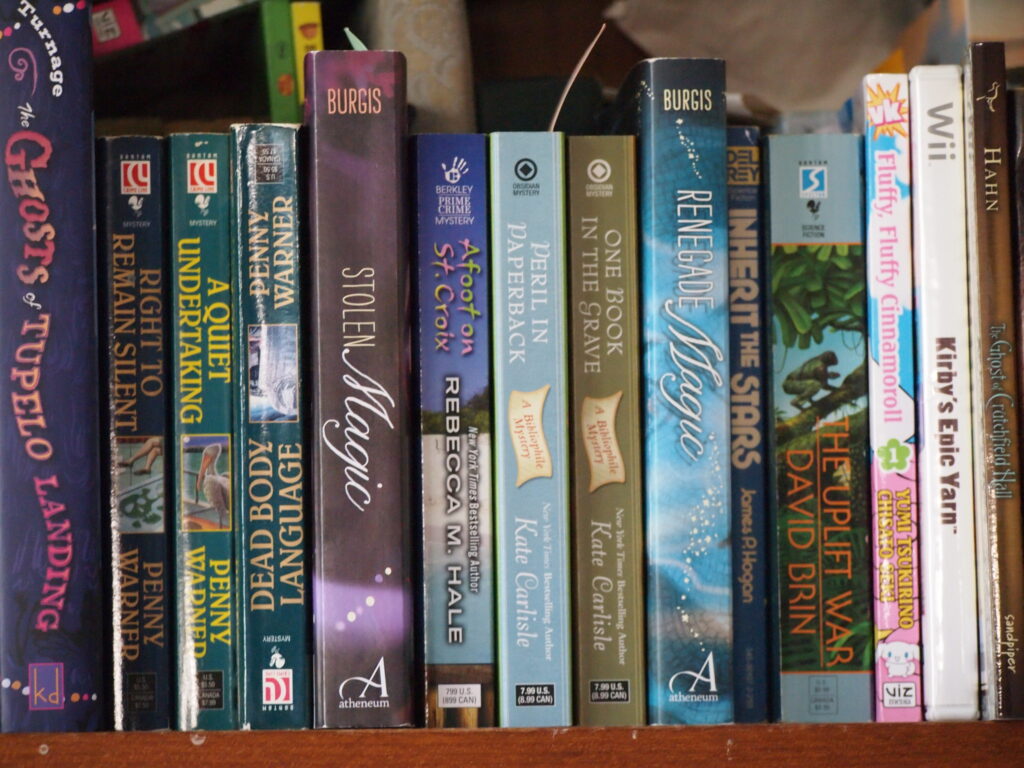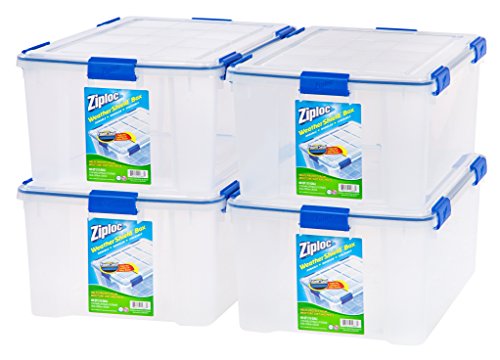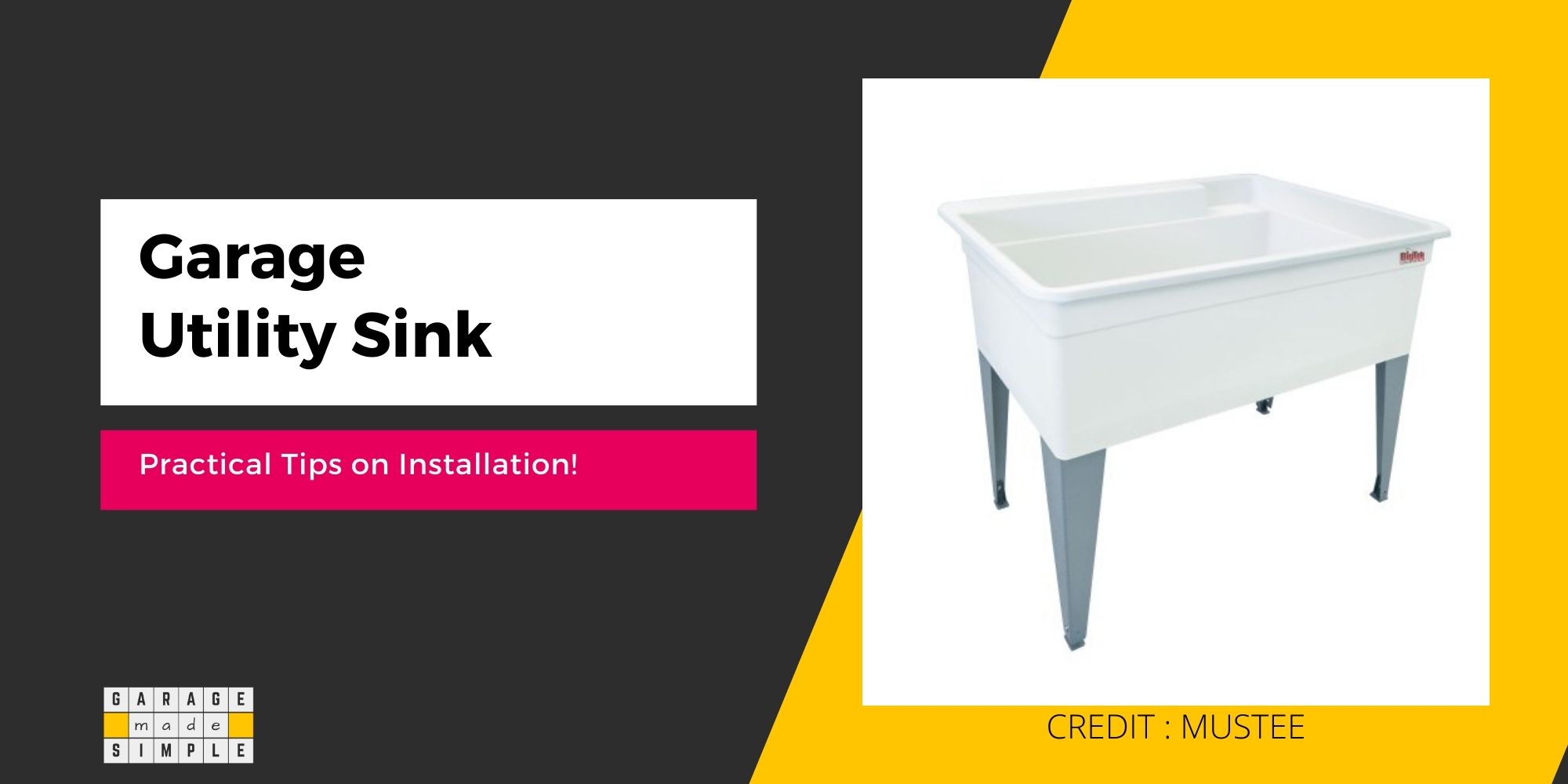How To Store Books In Your Garage? Comprehensive Guide 2024!
As an Amazon Associate, I earn from qualifying purchases.
Is it OK to Store Books in Your Garage?
Wait! You can never have too many books. But you can run out of space & bookshelves in your bedroom & living room.
Can you store books in a garage? How to store books without a bookshelf? Is storing books in plastic containers OK? These are natural questions, when you have too many books.
Yes, it is OK to store books in your garage. Books have three enemies; pests, moisture & temperature swings. A climate controlled garage, a living space for you & your family, poses no threats to the storage of books. Your book storage will just need some moderate care.
But, if your garage is not climate controlled, then you will need to ensure that the books are protected from insects & rodents, dampness, sunlight & temperature fluctuations.
Find out more about climate controlled garages from my blog post How To Make Sure Of Best Climate Control For Your Garage

Books evoke an emotion that can not be explained by logic. In this digital age, when you have terabytes of memory on your computer and a lot, lot more in the cloud, why do you even have books? The reason is just love & joy.
Books are a treasure! The love of books is an emotion. It goes beyond logic.
Should you Store or Display Books in a Garage?
I do think that there is a slight distinction between storing books and keeping or displaying books in a garage.
Store Books without a Bookshelf
When you store books, you do not expect them to be read for some time, that is a few years. There could be many reasons. Maybe, you have too many books and the bookshelves are overflowing.
Maybe, you have two kids, born five years apart. You may want to store the books of the eldest, so that the second kid can use them five years later.
You then need to know how to store books without having to display them on a bookshelf. How to store books in plastic containers, is certainly worth knowing.
Display Books on a Bookshelf
When you keep or display books in a garage, the idea is that you will read, browse or refer to them off & on.
Maybe you are a professor, a lawyer, an architect, where books are a critical part of your profession. Maybe you have a mini library, a reading nook or a home office in your garage.
True book lovers get immense joy just seeing their books neatly displayed. If you love books, the way I do, you would want your books up on shelves, not in a box, even though they are being kept in the garage.
In this post I am going to explain how the three enemies of books can destroy your valuable possessions, how you can keep them at bay and what is the right way to store and take care of your books while stored or kept in your garage.
What are the Physical Parts of a Book?
Real books, unlike their digital cousins, are made up of physical materials. Material can degrade with time. But you can increase the life of a real book by taking good care of it.
If you understand how books are produced, you will understand how and why the enemies of books attack them. You will then know how you can protect your books from its enemies.
Paper
Of course you know this. Books are printed on paper. And you also know that paper is made from trees. Trees are reduced to wood pulp which is pressed between rollers to produce paper rolls.
Paper is mostly tree and tree is mostly cellulose. Cellulose is food for insects & vermin.
Ink
Printing ink is somewhat similar to black paint. Carbon black is the main pigment in black ink, which is of course the most common print color for books. The pigment is held together by resins in an oil medium along with additives.
Binding Glue
Most books are produced using a technique known as “Perfect Binding”. The pages and the cover are glued together at the spine with a strong yet flexible glue. The other three sides of the book are then trimmed to give them clean “perfect” edges.
In the earliest days of bookbinding, animal glue or bread flour paste were used as adhesives. Today the adhesive is generally made from methylcellulose.
All these have one thing in common. They are food for pests.
What kind of Pests eat Books?
The only thing that will destroy books faster than pests is fire. One of the most distressing moments in a book lover’s life is to find pages eaten away by pests. A book is mostly cellulose. Cellulose is food for many household insects.
The book eating insects to watch out for are:
Silverfish
Silverfish will eat almost anything but their favorite is starchy things. Books with sizing in the paper and glue in the binding have starch. So silverfish are naturally attracted to books.
Silverfish will remove the glaze on the paper, leaving areas with a dull finish. They can also chew irregular, notched holes in the paper. Their droppings and body scales leave yellowish stains on the pages.
Cockroaches
Cockroaches operate very much like silverfish. You are familiar with the threat roaches are to the clothes in your closet and the food in your pantry. Well, they will devour books with equal gusto.
Check out my earlier blog post How To Get Rid of Roaches From Your Garage? (What You Need To Know!) to find out more.
Books that are dirty, food stained, stored in cardboard boxes or in damp dark places are especially vulnerable. Roaches will chew the page edges and lay eggs in the binding.
Beetles
Beetles are borers. They are known to bore holes in wooden furniture such as cabinets and chairs. They do this as they chomp through the cellulose in the wood.
For them, books which are primarily cellulose, are food, just like wood. So they will bore holes through books, as well, given a chance.
Termites
The preferred food of termites, just like beetles is wood. They bore holes through wood because of the cellulose. Since books are paper made from wood, termites will happily eat through books as well.
Why Do you Need Pest Control for your Garage?
You certainly need to worry about pest control in your garage, especially if you plan to store your precious books in the garage.
You should not store books in your garage, if its infested with pests. Actually you should not be storing most things. Not wooden furniture, not clothes.
If you want to store books in your garage you must get rid of the pests. And make sure they do not come back. Proper pest control and pest management in the garage involves four steps.
- Kill the Pests using baits, traps or sprays
- Deprive the Pests of food, water & shelter
- Create physical “entry barriers” for the Pests
- Stop the Pests from breeding outside the Garage
You can find out more by reading my blog post How To Get Rid of Moths From Your Garage? (What You Need To Know!).
Does Humidity Affect Books Stored in a Garage?
Dampness
High humidity is detrimental to books because dark, damp environments encourage pest growth & infestation. We have already seen how pests like roaches and beetles can eat away book edges or bore holes right through them.
It is very important to have good ventilation in your garage to reduce dampness. Read my blog post Really Easy Ways To Vent A Garage With No Windows for some great tips.
Mold Growth
High humidity is also conducive to mold & mildew growth. Mold is ever present in the atmosphere as spores, but they can grow rapidly in dark, damp areas.
When a book or paper becomes moldy, the fungi will digest its food source, paper and cloth (such as book covers and bindings), in order to survive. This process stains and destroys books, papers, and other library collections over time.
Source: Wikipedia
It is for this reason that British Library recommends:
Relative humidity should also be as stable as possible. If you can measure relative humidity between 45% – 55% relative humidity (RH) is recommended.
Source: British Library
Dryness
A very dry climate, that is one where the humidity is quite low, is not good for books either. The pages become brittle, warped & wrinkled. They are more likely to snap & break.
What Temperature should Books be Stored at?
Temperature swings affect paper, just as they affect the quality of alcohol stored in a garage. Paper expands and contracts as temperatures rise and fall. This can result in shrinkage of the book cover and exposure of the book edge to wear.
Both the book cover and the paper of the book can warp due to temperature fluctuations. Swings in temperature can also cause flaking ink & cockling paper.
Why Books Degrade Faster in High Heat?
High heat can accelerate the pace of chemical degradation of ink & paper. Chemical activity tends to increase at higher temperatures. This is why it is important to ensure that books are kept away from heat sources like garage heaters, radiators and windows exposed to direct sunlight.
How to Prevent Books Stored in a Hot Garage from Degrading?
I highly recommend using a Mini Split Ductless Air Conditioner to keep your detached garage cool in the summer. It is important to get the model which has sufficient cooling power for your needs. Typically an 18000 BTU should be fine for a 3 car garage.
Check out 18000 BTU Mini Split Ductless Air Conditioner with 1.5 Ton Heat Pump AC/Heating System on Amazon. It’s key features are:
- 18000 BTU Mini Split Ductless Air Conditioner from Air-Con Int.
- It is a high efficiency air conditioner, heater and dehumidifier all in one.
- Built with pro-grade materials for a long life.
- WIFI ready with optional additional remote.
Often garage insulation is associated with cold climates and winter. But in fact the right kind of insulation is very helpful in keeping a garage cool in hot climates and in summer.
Find out about The Best Garage Door Insulation For Hot Climates (Helpful Advice!) by clicking this link.
Can Sunlight Damage Books?
Direct sunlight also hastens the fading of text and pictures in a book. This is because of the UV radiation in sunlight.
Can Books be Stored in Cold?
Most pests prefer warm, humid conditions. So generally speaking, a somewhat cold and a somewhat dry environment is good for storing books. There is less risk of them being attacked by pests.
However, too much cold and too much dryness will cause the book covers to warp. Fortunately the sweet spot for books and human beings is about the same.
70° Fahrenheit and 50% Relative Humidity (RH) is an ideal environment for book storage.
Source: The University of Chicago Library
Should you Store Books in Garage in Plastic Containers?
If the intention is to store books (not display) in the garage then storing books in plastic containers is possibly the best option.
Here’s why:
- Plastic containers can be airtight. The books inside are not affected by humidity fluctuations in the garage.
- Airtight plastic containers will not allow dust to enter the container. So the books inside will never get dusty.
- An airtight plastic container will also be watertight. So there is no risk of the books getting wet in case of water flooding or leakage in the garage.
- An airtight plastic container is an effective barrier to all known pests. Pests can not eat or bore through plastic. The books inside are safe from pests such as roaches & termites.
- An airtight plastic container will also protect your books from book gnawing rodents like mice & squirrels.
- Plastic containers will protect the books inside from wear & tear and physical damage.
Plastic containers to store books without a bookshelf should be opaque, so that sunlight can not get in. The books inside will not fade.
Plastic containers can be neatly labelled. Organize your books in these containers in the best way that works for you. By author, title or subject. Organizing by size may be quite helpful too to get the best use of the container.
Print a label and stick it to the container and keep the list (in excel or google sheets) on your laptop for quick reference.
TIP: Never store books in the garage in Cardboard Boxes. Only airtight Plastic Containers.
Why Store Books in Garage on Bookshelves?
If you can store books in your garage on bookshelves then the biggest advantage is that you have easy access to them.
Books, neatly displayed on bookshelves, will give you immense pleasure. They will be a source of pride too. I can already visualize your beaming face when your book loving friends drop by.
What are the Best Shelves for Books?
There are a number of ways to get hold of cheap yet good quality book shelves for your garage library. There are so many stores to choose from. IKEA, Target, The Container Store, Staples and of course Amazon.
Powder coated metal or MDF wood shelves look good and easy to maintain. Most importantly they are well sealed and will not damage your books.
How to Take Care of Books in Your Garage?
Climate Controlled Garage
For a climate controlled garage, the care required is the same as if the books were displayed in your bedroom or living room. A few tips are:
- Make sure that the bookshelves are not made from unsealed wood. Sealed wood, painted metal or plastic are just fine.
- Ensure the shelves are not near the garage heater or radiator.
- Do not keep the shelves near windows to avoid exposing the books to direct sunlight which has harmful UV radiation.
- Keep the books upright (straight, not slanted) on the shelf. Keep similar sized books together and avoid packing the books too tightly on the shelf.
- You can also keep the books flat on the shelf. Keep them in a pyramid shape, the biggest book at the bottom.
- Keep books with dust jackets on.
Non-Climate Controlled Garage
If your garage is not climate controlled, try not to store books in your garage. If you absolutely must, follow all of the above and then some.
- Place pest repellents such as cotton dipped in peppermint oil, near the books (not on the books).
- Get some air circulation going in the book shelf area. Ceiling fans or exhaust fans are an option.
- If your garage is humid most of the time, get a dehumidifier. If it is dry most of the time get a humidifier. Get a hygrometer for checking humidity levels in your garage.
- Dust your books regularly (once a week recommended).
- Inspect your books regularly for mold growth or pest damage (once a month recommended).
Find out more about garage ventilation from my blog post Really Easy Ways To Vent A Garage Without Windows
Bottom Line
The bottom line is that in case your garage is climate controlled, then it is a proper living space. If the garage is comfortable for you & your family to spend time in, it is good enough to store books.
You must protect your valuable books from their three enemies; pests, moisture & temperature swings. UV radiation in the sunlight will make books fade faster but for most garages sunlight is not a concern.
You can store books on shelves or you can store books without a bookshelf. You can do this by storing books in plastic containers .
Thank you very much for reading the post. I do hope you found it informative and useful.







